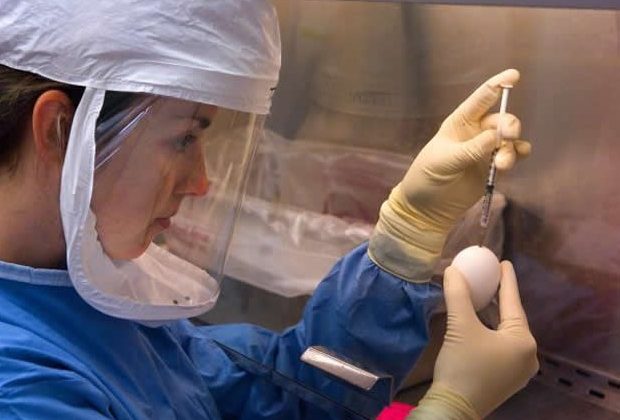The severity of a lung disease associated with e-cigarettes in teens decreased during the COVID-19 pandemic, but hospitalizations from the disease continued to mount, according to a study of more than three dozen patients by UT Southwestern researchers published in Pediatric Pulmonology.
The 13- to 18-year-olds in the study were all diagnosed with e-cigarette, or vaping, product use-associated lung injury (EVALI), which was identified in 2019 when the Centers for Disease Control and Prevention became aware of clusters of lung injuries associated with e-cigarettes. EVALI has many of the same symptoms as COVID-19, including fever, nausea, vomiting, coughing, shortness of breath, and difficulty breathing, so diagnosing it correctly has become more challenging.
We found that cases of EVALI peaked after the onset of the pandemic, indicating that e-cigarette use continued in adolescents despite social isolation. This is a severe disease, and we urge both parents and clinicians to be aware of the symptoms of EVALI so it can get diagnosed and treated quickly in teens."
Devika Rao, M.D., Lead Author, Associate Professor of Pediatrics at UT Southwestern and Medical Director of the Pulmonary Function Testing Laboratory at Children's Health
Recent surveys suggest that more than 1 in 10 high school students in the U.S. use e-cigarettes, which deliver aerosolized liquids containing nicotine, tetrahydrocannabinol (THC), flavorings, and other substances that are known to be toxic to the lungs. Since the COVID-19 pandemic changed both the social and medical backdrop for EVALI, Dr. Rao and her colleagues looked at how rates and outcomes of the lung injury had changed.
"EVALI can frequently be misdiagnosed unless a clinician has a high suspicion and asks about vaping history in their patients," Dr. Rao said. "This is especially true during the pandemic when COVID-19, which shares many symptoms with EVALI, is on the forefront of clinicians' minds."
In the study, researchers analyzed 41 cases of EVALI in teenage patients at Children's Medical Center Dallas between December 2018 and July 2021. Nineteen were diagnosed before the COVID-19 pandemic, which started in March 2020, and 22 were diagnosed during the pandemic. All but one used e-cigarettes containing THC, and 19 used e-cigarettes containing nicotine. Most patients were treated with steroids, and their symptoms improved within 24 hours, but 31 patients required some degree of respiratory support such as a nasal cannula.
On average, patients admitted before the pandemic stayed in the hospital for seven days, and those hospitalized during the pandemic stayed for five days. Four patients diagnosed before the pandemic required intubation with mechanical ventilation.
The slight decrease in the severity of EVALI seen during the pandemic may reflect a growing awareness of the disease, leading to earlier diagnosis and intervention, researchers hypothesized. However, the team concluded more work is needed to determine whether the trends seen in Dallas are true elsewhere. Further awareness of EVALI is also key.
"As adolescents vape for longer and experiment with new types of e-cigarette products, the manifestations of e-cigarette use will continue to evolve," Dr. Rao said. "Clinicians need to consistently screen adolescents for e-cigarette experimentation and use. And we must continue to commit to the public health messaging that e-cigarette use is harmful for children."
Other researchers who contributed to this study include Bayan Abdallah and Harin Lee of UTSW; and Sitara Weerakoon, Sarah Messiah, and Melissa Harrell of the UTHealth Science Center at Houston.
UT Southwestern Medical Center
Abdallah, B., et al. (2022) Clinical manifestations of EVALI in adolescents before and during the COVID-19 pandemic. Pediatric Pulmonology. doi.org/10.1002/ppul.26283.
Posted in: Child Health News | Medical Research News
Tags: Adolescents, Breathing, Children, Children's Health, Cigarette, Coughing, covid-19, Education, Fever, Hospital, Laboratory, Lung Disease, Lungs, Medicine, Nausea, Nicotine, Pandemic, Pediatrics, Public Health, Pulmonology, Research, Respiratory, students, Tetrahydrocannabinol, Vaping, Vomiting
Source: Read Full Article
